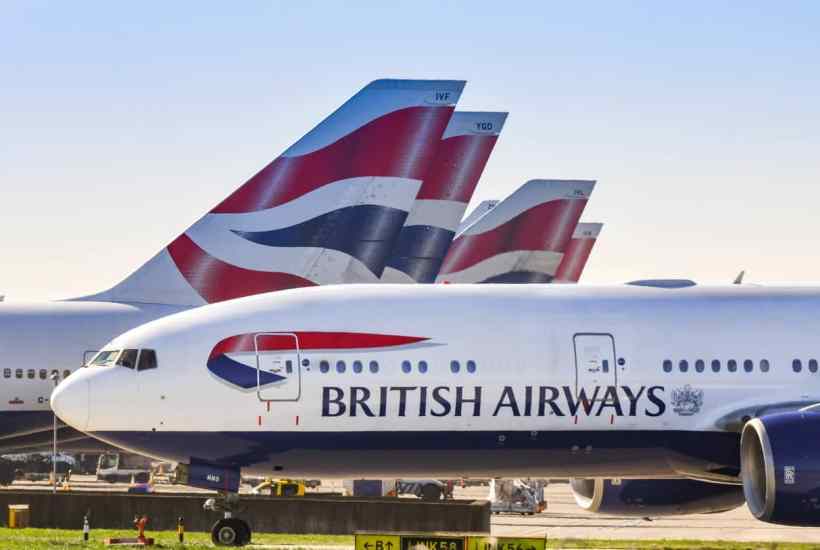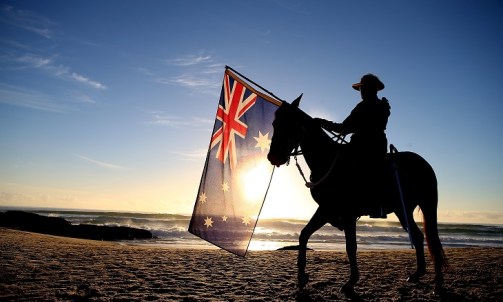British Airways is dropping ‘ladies and gentlemen’ from its announcements. In the name of diversity and inclusion, the airline has instructed staff to use a more ‘gender neutral’ salutation.
You might think that after 18 months of turbulence, BA has more important things to worry about. In spring and summer last year the company was forced to cut 10,000 jobs, representing a third of its workforce, after Covid grounded most of its aircraft. The airline was the biggest user of the furlough scheme, claiming over £10 million in June this year alone.
Nonetheless, a decision has been made to boldly follow where Air Canada, EasyJet and Lufthansa have already gone, changing its language in an effort to mollify a vanishingly small minority. No longer will children have to feel excluded. No longer will ‘social norms’ be disregarded. In this brave new world, passengers will presumably be called ‘everybody,’ or ‘valued customers’. Certainly not that bastion of everyday sexism: ‘guys’.
A lot can happen in a half decade. In 2016, British Airways still proudly laid claim to being the ‘world’s favourite airline’. The national flag-carrier had pipped John Lewis to the position of UK’s most popular brand for the third year running. But in the intervening years, the wheels started to come off, and bad PR took the wheel. In 2017 an elderly passenger was denied access to the loo. In 2018, thousands of customers were affected by a severe data hack which compromised their personal and financial details. The following year, a senior cabin crew was discovered moonlighting as a porn star.
In the same period, BA was morphing into what the Sun once called ‘British Bareways’. Gone were the complimentary meals. Legroom was reduced, Basic Economy brought in. Essentially, the Michael O’Leary, no-frills approach to aviation was adopted. Customer perception started to drop. So it’s perhaps not hard to see why, as we emerge from the pandemic, the airline is seeking good press. And these days, the allure of ‘diversity’ is irresistible – even to a company whose reputation is steeped in tradition and whose average customer is pushing 50. Many consumers now vocally support social justice causes and progressive values are seen as a powerful marketing tool.
Just look at the stunt Ben & Jerry’s pulled last year. The Vermont-based business – whose parent company Unilever has a questionable record on workers’ rights – issued a bizarre condemnation of Priti Patel over migrant crossings. The move may have irked some customers, but not the kind who would boycott the ice cream brand. There is no right-wing equivalent of cancel culture, perhaps because right-wingers tend to be less inclined to make everything about politics and morality, least of all frozen desserts. In the same vein, the types of passengers who rather liked being called ‘ladies and gentlemen’ are unlikely to let this affect their consumer choices.
But this does raise a wider question: is it socially and economically beneficial that conservatives are too apathetic to change their actions? If only one side cares, that side always gets its way: as we are witnessing with the rise in trans rights and corresponding decline in protections for women. We’re now in a strange situation where Conservatives keep winning elections, but really it feels like we’re governed by the Critical Race Theory department. BA is just the latest company to fall in line.
There’s still little evidence to suggest that companies benefit economically from their performative progressivism. ‘Woke capitalism’ is a paradox, because most woke people want to dismantle the whole system. They are more likely to view corporate publicity stunts, like airlines banning gender-binary terms, as cynical and manipulative. It’s likely that stunts like BA’s current virtue signalling do companies no harm, but neither do they actively benefit from it.
Who knows where this tug of war will end. Perhaps, in detaching themselves morally and ideologically from many of their customers, businesses will thrive. But I doubt it.
Got something to add? Join the discussion and comment below.
Get 10 issues for just $10
Subscribe to The Spectator Australia today for the next 10 magazine issues, plus full online access, for just $10.



















Comments
Don't miss out
Join the conversation with other Spectator Australia readers. Subscribe to leave a comment.
SUBSCRIBEAlready a subscriber? Log in